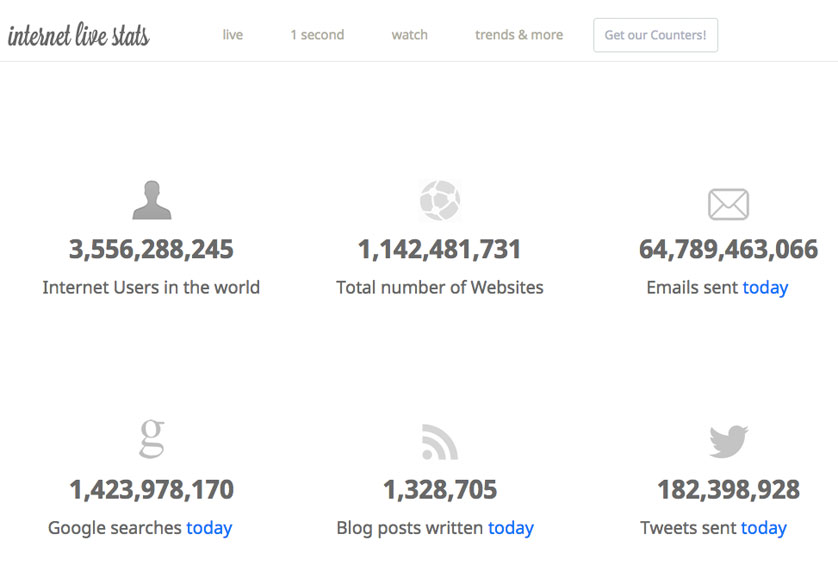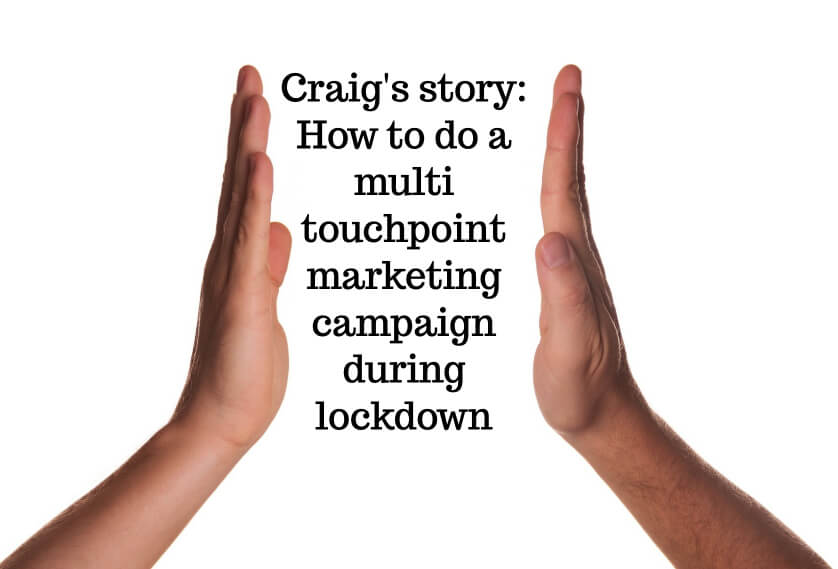Last week I had the pleasure of staying in a budget hotel (what a life I lead) while doing a Discovery Day.
The staff were lovely. But I wonder if the hotel’s marketing department has been overly busy recently.
Because in the bar, was one of the least effective pieces of marketing I’ve seen in a long time. Here’s a picture of it.

It reads:
Let the night B’gin. Buy nine grand gins and get the tenth free.
Simply ask a team member for a collector card and on every purchase, get your card stamped. When you have collected nine stamps simply present your card to a team member to receive your tenth grand gin – free!
Crazy, right? Who’s going to be motivated to buy nine gins from the same hotel? And keep a collector’s card in their purse or wallet?
The barman confirmed that in the few months the promotional banner has been there, not a single person has asked for a gin card.
You can see how this kind of ineffective, dumb marketing happens. It typically comes from a knee jerk reaction to try to increase sales.
Maybe you’ve done it in your business. Things are quiet, sales are down, so you rush out a piece of marketing in the hope it generates some business.
This kind of reactive marketing rarely returns the very best results. Because there is no strategy behind it.
Then you need a simple strategy to achieve this goal
Then you need the correct tactics to allow you to implement the strategy
Dumb marketing comes from jumping straight to tactics without having a clear goal or strategy in place.
This stuff can’t be done quickly, you know. It takes me a whole (exhausting but rewarding) day with a business owner to help them be utterly crystal clear on what they want from their business, and how to achieve it.
And every IT support business needs an utterly unique strategy created for it. Because the strategy is affected by dozens of different factors, including the owner’s age, ambition, drive, the staff, the local area, the kinds of services offered, capacity, etc etc.
Here are the simplified (and strictly anonymous) results of a few Discovery Days I have completed in recent months.
Example 1:
A better quality of life
The owner wanted to get a better work/life balance. Great! You’re not going to get to the end of your life and wish you’d spent more hours chained to a desk, fiddling with a PC’s settings.
But he didn’t want his personal income to drop. And he did quite a bit of the support work himself. We calculated that if he could increase turnover by £1,000 a week, that would create the ability to take on extra part-time help that would pay for itself.
Goal summary:
Work 4 days a week instead of 5, without any impact in personal income
Strategies summary:
1) Robust price increases across the board (particularly in back-end services, where there is less awareness of pricing)
2) Win X number of new top end clients
3) Treat recruitment as a marketing exercise
Tactics summary:
1) Introduce 3 tier pricing to increase perception of choice (putting the more expensive service you want to sell into the middle tier – seen as the safe choice)
2) Put in place data capture on the website with educational follow-up emails and a phone call. Drive quality traffic to the data capture from Facebook and LinkedIn. Maybe Google
3) Build a pipeline of prospects and build a relationship with them, so there is a choice of talent at the point a new member of the team is needed
Example 2:
Protecting against an aggressive competitor
The owner was concerned about an aggressive competitor in town, who seemed to be everywhere. Every event, all over the business magazines, and at top of Google.
His original goal was to maintain his business at current turnover levels. I suggested he focus instead on maintaining, protecting then growing the business’s net profits. Turnover is vanity, profit is sanity.
Goal summary:
Increase net profit to X
Strategies summary
1) Take an 80/20 approach to clients (aka firing your worst clients, so you can better service your best ones)
2) Dramatically improve retention by shifting all clients onto proactive service plans
3) Put in place formal annual reviews with clients, to identify authentic upselling opportunities
Tactics summary
1) Segment clients by behaviour. Increase prices for worst clients. Change new client marketing to put off bottom end clients and pre-qualify prospects
2) Put together “no brainer” plan proposal for each client. Present in person in order to overcome apathy and lack of action taking
3) Annually take clients out for lunch for a formal IT review. Follow an exploratory process to identify problems that need to be solved, or desires they want to be met. Create a menu of additional services, and present only when they are clearly needed or wanted (this is authentic upselling – there is no “selling” required. Instead a trusted advisor advises. The client buys. Everyone is happy and everyone wins).
How to make it easy to pick the right tactics
In both of these examples, the tactics were very clear to us, only when we had figured out the goals and the correct strategies.
Growing a business is like following a sat nav.
The goal is the destination.
The strategy is the plan. Fastest route or most efficient? Motorways or A roads?
And the tactics are the specific roads you use and route you take.
The destination never changes. The plan rarely changes. But the roads used change all the time. Your sat nav redirects you around problems to get you to your destination.
In marketing, get the goal right and it never changes. The strategy probably won’t either.
But the tactics will. Some will work, many won’t. So long as you have a clear goal and strategy, the right tactics become a lot clearer.
PS Dumb marketing is carried out by huge companies as well as small.
I use EE for my mobile… here’s an email I got from them last week….

It reads:
Sky is set to launch a new mobile service this winter called Sky Mobile. Existing Sky customers are able to register their interest in the service from Monday 31st October. So far, no details of prices or packages have been released… this is where you come in!
If you are an existing Sky customer, we would like you to keep an eye out for any promotions you receive from Sky about Sky Mobile offers and let us know about it on our new forum.
Thanks EE. You just told me there’s a new competitor about to pop up. You’ve told me I’m qualified to use their service (as I’m a Sky TV customer). AND you’ve encouraged me to seek out their offers!
That kind of “in it together” community marketing can work well for small businesses, when done correctly. But it’s totally the wrong approach for a massive business that sells a commodity service.
I bet heads rolled at EE after that email went out…






